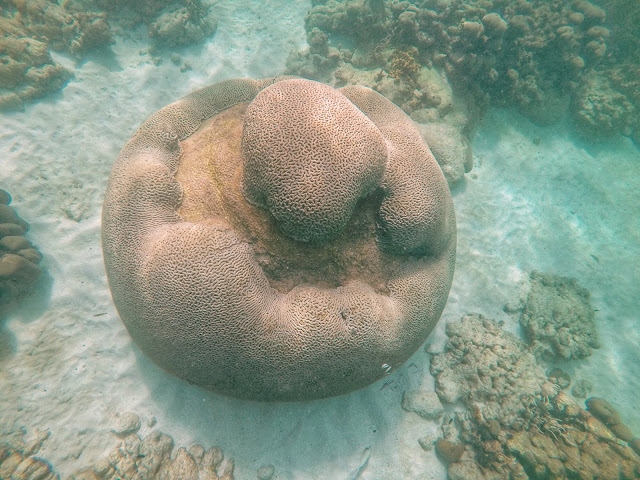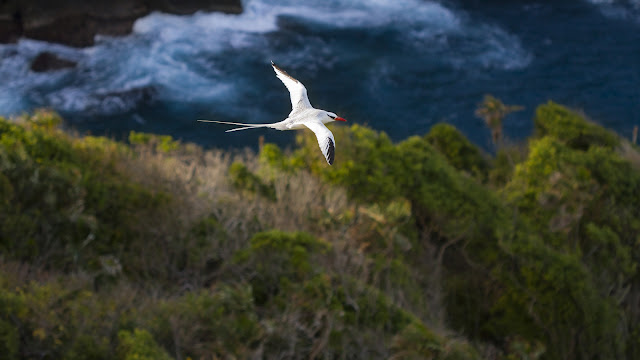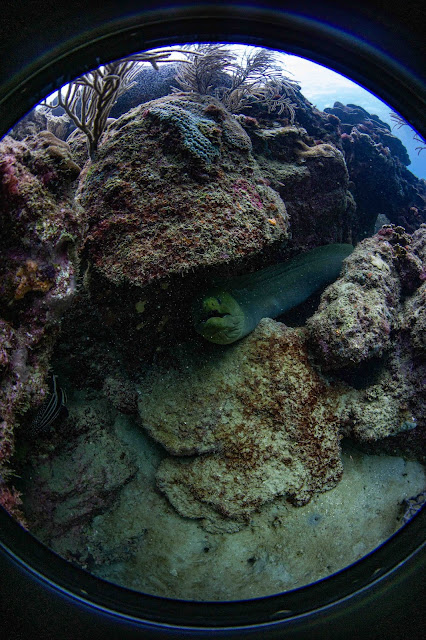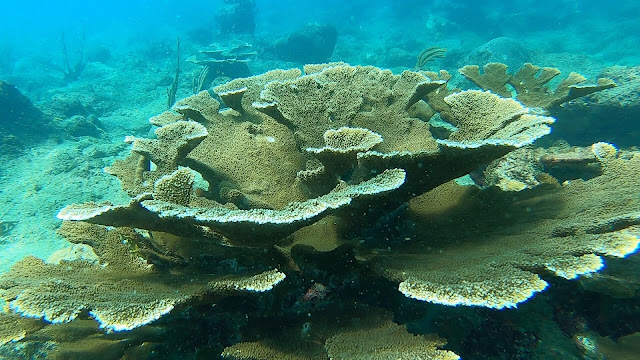Blessing in Disguise for Buccoo Reef Marine Park
What’s happening at Buccoo Reef Marine Park
during Covid-19
Shivonne
Peters, marine scientist, advocates seasonal closure of the Buccoo Reef Marine
Protected Area, for recuperation and research, and calls for stricter
management practices. The current closure due to Covid-19, however, has brought
another problem to light, poaching.
In Trinidad and
Tobago, the Covid-19 pandemic has resulted in the closure of the nation’s
beaches, rivers and waterways. It was therefore no surprise when the temporary
closure of the Buccoo Reef Marine Park was announced from March 24. While the
reason for this closure was dictated by the government’s decision to restrict
public gathering, there is another tremendously positive impact. It allows this
ecologically important area to recover from years of human activities, which
have led to environmental stress and degradation. After decades of overuse,
misuse and an overall lack of effective management, this period of closure may
be exactly what the doctor ordered to return Buccoo Reef to health.
 |
| Buccoo Reef: calm on the surface, teeming with life below. Photo by Shivonne Peters |
Marine areas
worldwide are subject to temporary and seasonal closures. One of the most
notable closures occurred in the Philippine island of Boracay. In 2017, over
two million people visited Boracay; in April of 2018, the island was closed for
a six-month period. With such remarkable visitor numbers, what could possibly
be the reason for such drastic action? Government officials descried the island
as a ‘cesspool’ and cited environmental issues related to sewage disposal,
improper solid waste disposal and unregulated coastal development. A phased
reopening was recommended along with several other initiatives including
limiting the number of visitors to the island and an outright ban of party
activities. The closure achieved the desired results, and Boracay Island is
cleaner, safer and less crowded than previous years.
Notwithstanding
the devastating impact on economies and business, especially in Tobago’s
tourism sector, the closure of beaches, rivers and other marine areas can positively
impact coastal ecosystems. With the start of the turtle nesting season in March,
an absence of visitors to our beaches reduces the level of disturbance caused
by human activities. In Florida, an increase in leatherback nesting along Juno
beach is thought to be a direct result of beach closures due to Covid-19. The
return of seabirds to once-overcrowded beaches in Peru is also attributed to an
absence of visitors. Beaches and river systems also benefit from reduced waste
which is often left behind in populated coastal areas used for recreational
activities. Ultimately, like turtles, all other marine life inhabiting coastal
areas will benefit from reduced human activities.
The closure of
larger, more ecologically-diverse areas would certainly produce more tangible
benefits. Habitats such as coral reefs, seagrass beds and mangroves provide
crucial ecosystem functions such as the dissipation of wave energy, shoreline
protection against erosion and nurseries for juvenile marine fauna. Buccoo Reef
Marine Park, the only Marine Protected Area in Trinidad and Tobago, will
undoubtedly benefit from this period of
closure. Decreased boating and motorized craft activity means less disturbance
for marine life due to noise and less scarring of seagrasses caused by boat
propellers. Fishing pressures - fishing is prohibited but still occurs - will
also be reduced due to area closures. Studies indicate that reef closures offer
protection to reproductive adults (fishes), allows for increasing larval
production and promotes the spill-over effect.
 |
| A colony of healthy elkhorn coral in the Buccoo Reef Marine Park. Photo by Shivonne Peters |
In times of
closure fish stocks within and surrounding the Buccoo Reef increase. Coral reef
colonies also benefit from reduced human activity. Improper dropping of boat anchors by some glass bottom boat
operators has caused severe damage to corals. Boating, particularly during low
tide, also results in scarring of corals by propellers. Despite this damage
caused by decades of unregulated activities, some colonies within the Marine
Park are healthy and extensive. Recent
reef surveys in Buccoo Reef have found Elkhorn coral colonies with diverse reef
fish species of considerable sizes. Other healthy reef indicator species such
as butterflyfishes, parrotfishes, spiny lobster and urchins were also observed
in this area. The closure of the reef, based on scientific studies, would allow
for an overall healthier and more productive Buccoo Reef.
Unfortunately,
some poachers are using this time of closure to heighten illegal fishing
activities. They indiscriminately target ecologically-important species such as
the queen conch and parrotfish. This further damages Buccoo Reef; and mitigates
against full recovery especially in light of projected climate change impacts. Moreover,
Tobago is highly dependent on the Blue Economy, a source of financial gain
through numerous avenues which can revive the local economy post-Covid-19. This
period provides the best opportunity in recent years to study the impacts of closure
on protected areas in Trinidad and Tobago. If and when the marine park re-opens,
we would have the opportunity to collect scientific data for comparison with
the data collected over the last two decades.
Such information is crucial in informing strategies needed for efficient
management of Tobago’s marine areas.
 |
| Brain coral colony at Buccoo Reef Marine Park Tobago. Photo by Shivonne Peters |
Although this
may be perceived as a lost opportunity due to the misguided efforts of a few,
there is still time to make a difference in Buccoo Reef’s future. Firstly, a
permit system should be implemented to regulate and record access to the Marine
Park; the system was proposed in the 2015 Buccoo Reef Marine Park User Policy.
Permit holders should be made to adhere to such regulations as no overloading of vessels,
no removal of marine life, anchoring only at designated areas and payment of an
entry fee (to be used for Park management)
Consistent
scientific research should also play a greater role in ecological monitoring
efforts. Attempts to control use of the area together with enforcement and
research can change the current trajectory of a paradise lost towards a
healthier, more resilient and sustainable Buccoo Reef.
(About the
Author: Shivonne M. Peters is Managing Director of Seven Environmental- a
Consultancy Company focused on the marine sector. She is currently a PhD
candidate in Marine Sciences at the University of Trinidad and Tobago. For
further information email sevenenvironmental@hotmail.com.)


